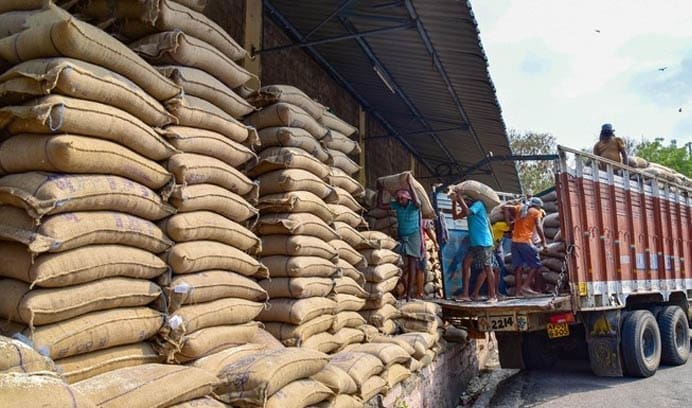India’s agricultural exports have experienced a significant decline of 11.6% year-on-year in the period between April and September. This decline can be attributed to various factors including the restrictions imposed by the Narendra Modi government on the export of commodities such as wheat, rice, and sugar. Furthermore, global prices have eased from their previous highs following the Russian invasion of Ukraine. The Department of Commerce data reveals that agricultural exports for April- September 2023 stood at $23.6 billion, a decrease from $26.7 billion during the same period last year. Similarly, imports also witnessed a drop from $19.3 billion to $16.2 billion, causing a minimal decrease in the agricultural trade surplus from $7.4 billion to $7.2 billion.
In the previous fiscal years, 2021-22 and 2022-23, India witnessed record-breaking agricultural exports of $50.2 billion and $53.2 billion respectively. However, the current fiscal year indicates a return to normalcy with both exports and imports contracting. This decline can be attributed to a decrease in global prices and the government’s imposed restrictions. The Food and Agriculture Organization’s Food Price Index (FPI) indicates that India’s farm trade, particularly its exports, is closely correlated with the world prices of agricultural commodities. The FPI rose from an average of 96.5 points in 2019-20 to 139.5 points in 2022-23, however, it averaged 123.2 points in the current fiscal year.
The decline in exports can also be attributed to the government’s restrictions on various commodities. Starting in May 2022, the government implemented bans and levied duties on wheat, rice, and sugar exports. These measures were taken in response to concerns over domestic availability and inflation. As a result, exports of wheat have plunged to negligible levels, while the export of non-basmati rice recorded a decline of 15.9% year-on-year. Additionally, sugar exports have more than halved, going from $4.6 billion in 2021-22 to $5.8 billion in 2022-23.
Farmers are facing concerns due to declining international prices, which impact the cost competitiveness of India’s agricultural exports and increase vulnerability to imports. This is evident in the case of cotton and edible oils. The global price of cotton has drastically reduced, leading to a decline in India’s cotton exports and a surge in imports. Similarly, the value of edible oil imports has more than doubled between 2019-20 and 2022-23 due to soaring global prices post the Ukraine war. Although prices have since collapsed, imports of crude palm, soybean, and sunflower oil continue to enter the country at a low import duty of 5.5%.
Despite the declining prices and concerns for farmers, the government’s focus on controlling food inflation ahead of elections has led to a continuation of imports of edible oils and pulses, while imposing restrictions on the export of cereals, sugar, and onion. This situation poses a double blow for farmers, impacting their incomes and market opportunities.

